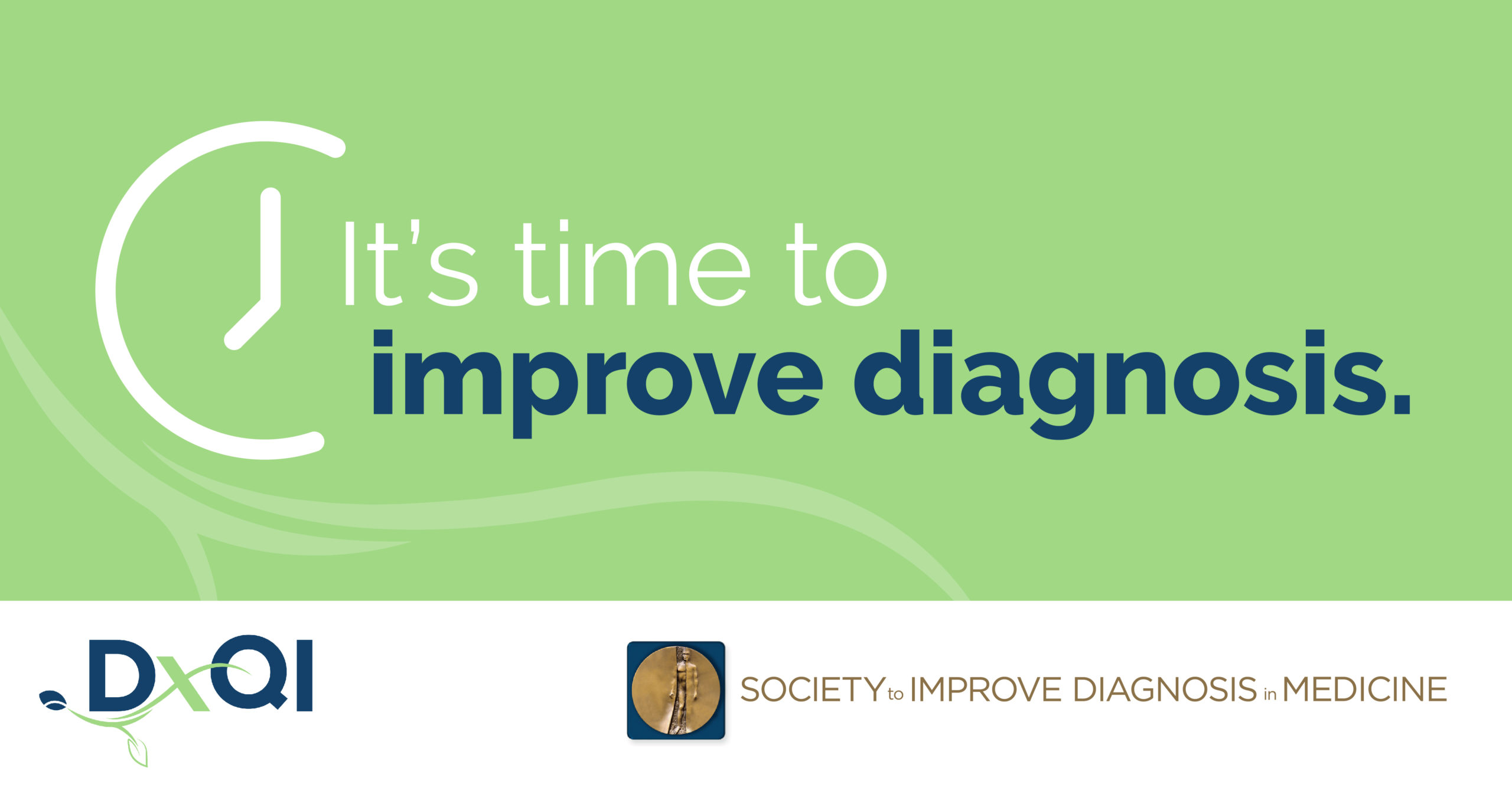
The Society to Improve Diagnosis in Medicine awarded the OpenNotes research team at Beth Israel Deaconess Medical Center a grant through its Diagnostic Quality Improvement Seed Grant Program
Evanston, IL — OpenNotes was one of 17 organizations awarded a grant by The Society to Improve Diagnosis in Medicine (SIDM) as part of its DxQI Seed Grant Program to improve the quality, accuracy, and timeliness of diagnoses. SIDM awarded OpenNotes $50,000 to support testing an intervention designed to improve diagnosis among limited English proficiency (LEP) patients and families.
Inaccurate and delayed diagnoses are the most common, catastrophic, and costly of medical errors according to an analysis published in BMJ Quality & Safety. It is estimated that 12 million adults in the United States experience a diagnostic error every year in outpatient settings alone, and diagnosis failures result in as many as 80,000 premature deaths every year in U.S. hospitals.
Partnering with patients and families, the research team will aim to improve diagnostic quality and safety by developing a patient-centered taxonomy that describes breakdowns in diagnosis as experienced by LEP patients and families. Together with the Boston Children’s Hospital Spanish Collaborative, the team will use this framework to develop, implement, and assess a novel online tool to better engage and “coproduce” diagnoses and visit notes with LEP patients/families in terms and priorities that matter most to them.
“Patient and family experiences of diagnostic breakdowns are inadequately heard, understood, and measured, and this may be an especially important gap in the care of patients who speak languages other than English,” said Sigall K. Bell, MD, Director of Patient Safety & Discovery at OpenNotes, and Associate Professor of Medicine at Harvard Medical School. “We are eager to continue our longstanding collaboration with Boston Children’s Hospital and work towards improving diagnosis among LEP populations. Diagnostic error is a significant problem, especially among the most vulnerable patients and families, and we are proud to be part of a cohort at SIDM developing specific strategies to improve the accuracy and timeliness of diagnosis.”
The DxQI grantees will identify and implement small, practical tests of change, and begin building evidence supporting interventions. If replicated and spread across other hospitals and health systems, these interventions have the potential to improve diagnosis. During the three-year program, SIDM will annually release a report about interventions that were effective and those that require further research and funding. The goal is to share the learnings with the broader healthcare community in the months and years to come.
“There are very few proven real-world solutions to minimize the harm diagnostic errors can cause,” said Gerard M. Castro, PhD, MPH, PMP, Director of Quality Improvement, SIDM. “The DxQI grants awarded through the program are a first step in learning what best practices we can build into the diagnostic process to ensure that patients receive a diagnosis that is accurate, determined in a timely manner, and effectively communicated.”
Ultimately, the Seed Grant program will help clinicians, hospitals and health systems take specific steps to reduce diagnostic errors by building an evidence base of effective interventions. Once tested, SIDM will create a clearinghouse of the interventions and be a catalyst for the adoption of effective practices by other organizations across the country.
“A diagnostic error isn’t just about the clinician—it’s about the complete care delivery process and includes all members of the healthcare team, including patients, which is why we sought to award grantees who recognize all of these important voices,” said Doug Salvador, MD, MPH, Chief Quality Officer at Baystate Health and Chair of the DxQI Seed Grant Review Committee. “Solutions to diagnostic questions are important now more than ever. COVID-19 put a spotlight on getting the diagnosis right as quickly as possible and the consequences of failure to the patient, their families, and the entire fabric of society.”
The DxQI Seed Grant Program is an initiative of the Society to Improve Diagnosis in Medicine with support from the Gordon and Betty Moore Foundation.
The next grant application period opens in January 2021. Organizations can learn more at www.ImproveDiagnosis.org/dxqi.
About OpenNotes
OpenNotes, based at the Beth Israel Deaconess Medical Center in Boston, a major Harvard Medical School teaching hospital, studies the effects of shared clinical notes on patients, care partners and clinicians, and disseminates its findings. OpenNotes works with collaborators around the country and overseas to foster and evaluate the spread and implementation of shared clinical notes (“open notes”). OpenNotes does not develop software and is not a technology company. It is funded entirely by federal and philanthropic grants and gifts. To learn more, visit www.opennotes.org.
About the Society to Improve Diagnosis in Medicine
The Society to Improve Diagnosis in Medicine catalyzes and leads change to improve diagnosis and eliminate harm from diagnostic error. We work in partnership with patients, their families, the healthcare community and every interested stakeholder. SIDM is the only organization focused solely on the problem of diagnostic error and improving the accuracy and timeliness of diagnosis. In 2015, SIDM established the Coalition to Improve Diagnosis to increase awareness and actions that improve diagnosis. Members of the Coalition represent hundreds of thousands of healthcare providers and patients—and the leading health organizations and government agencies involved in patient care. Together, we work to find solutions that enhance diagnostic safety and quality, reduce harm, and ultimately, ensure better health outcomes for patients. Visit www.ImproveDiagnosis.org to learn more.



